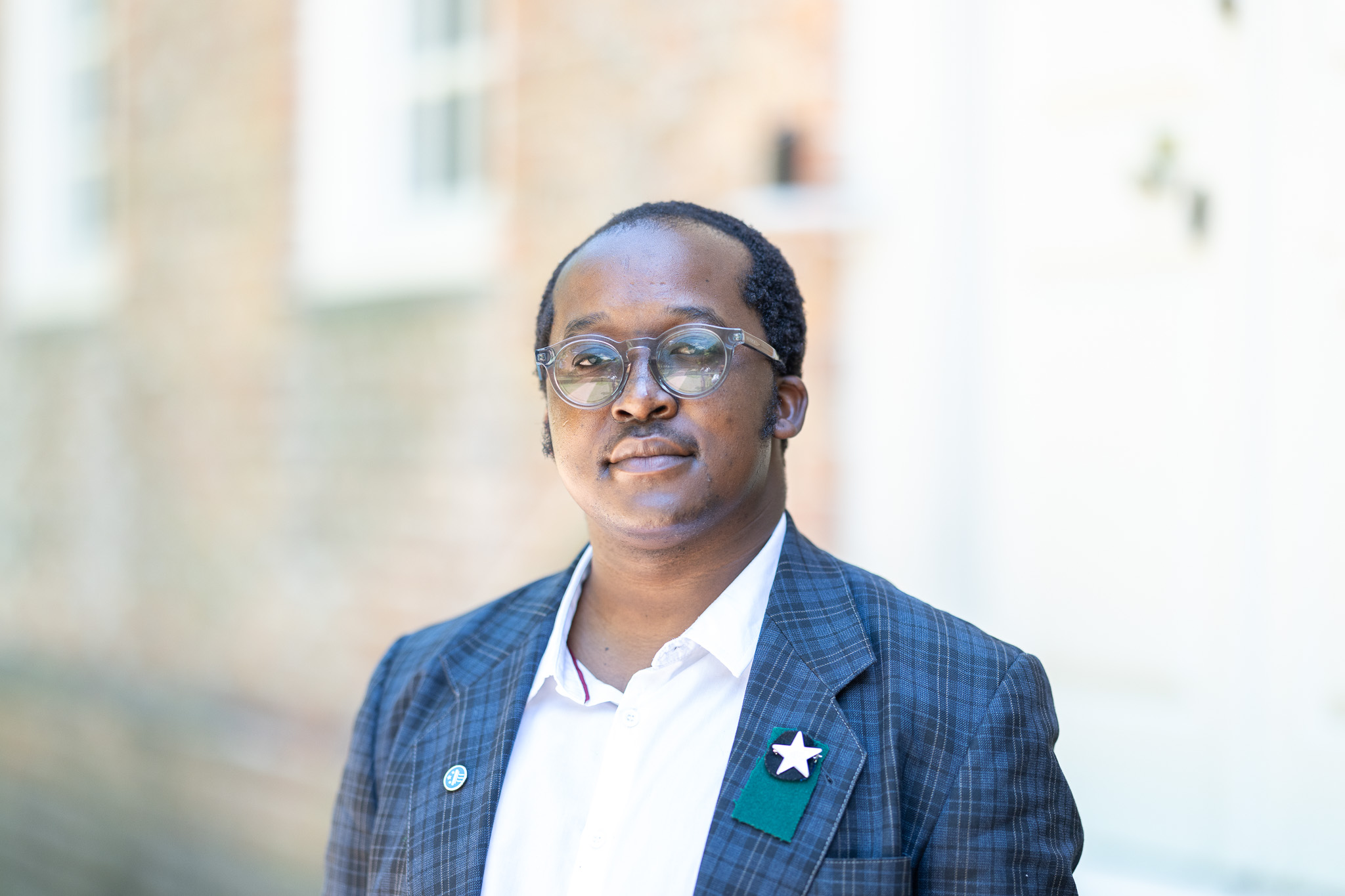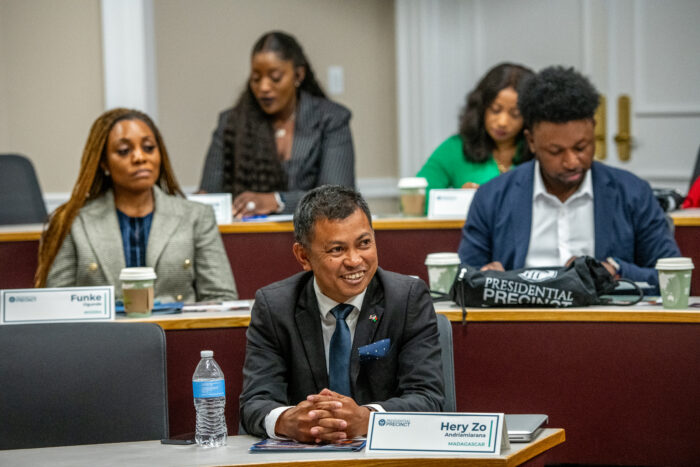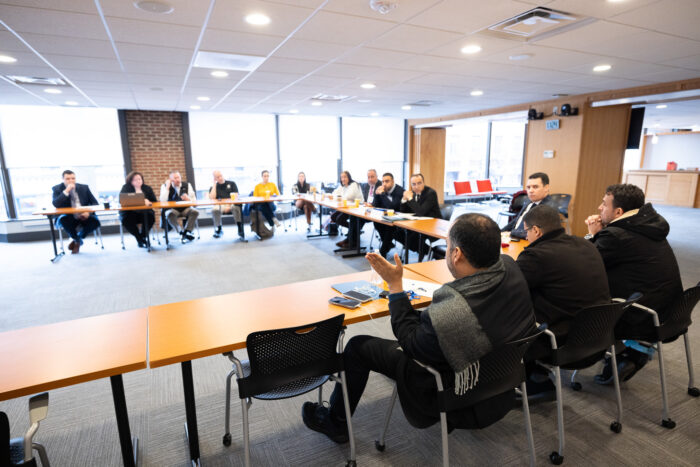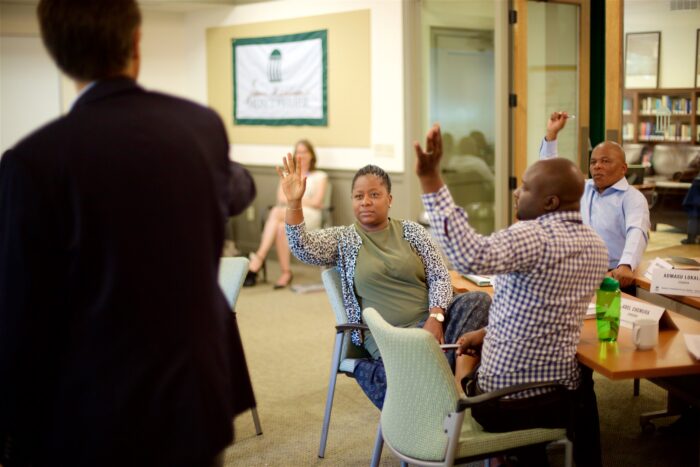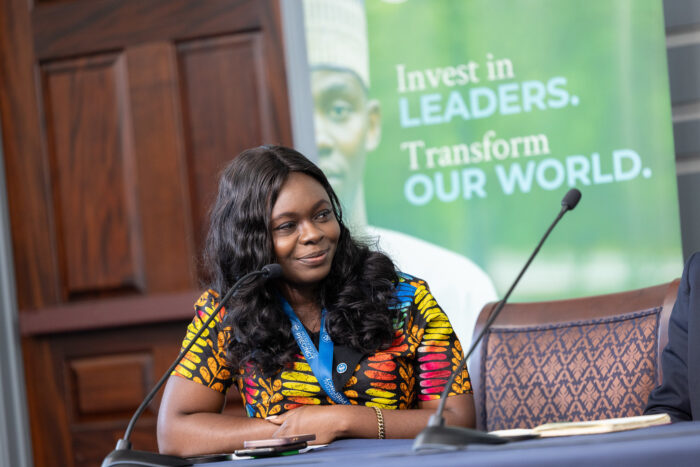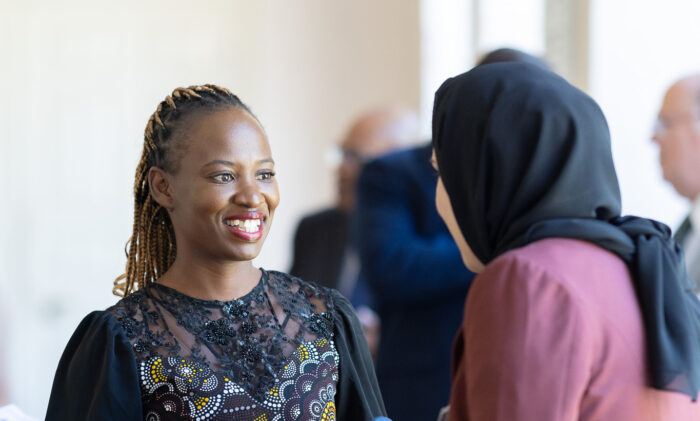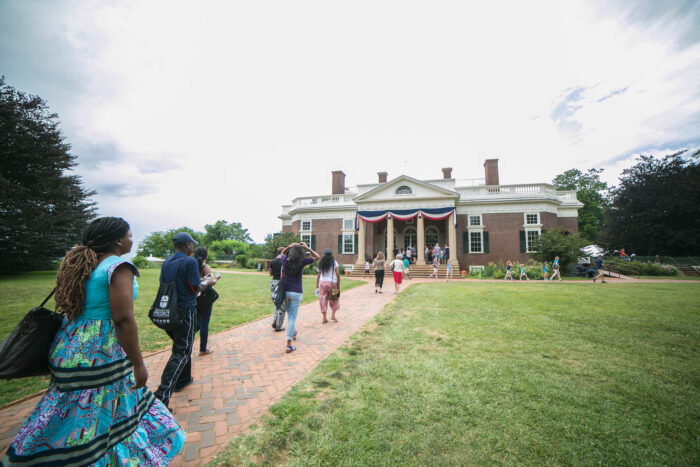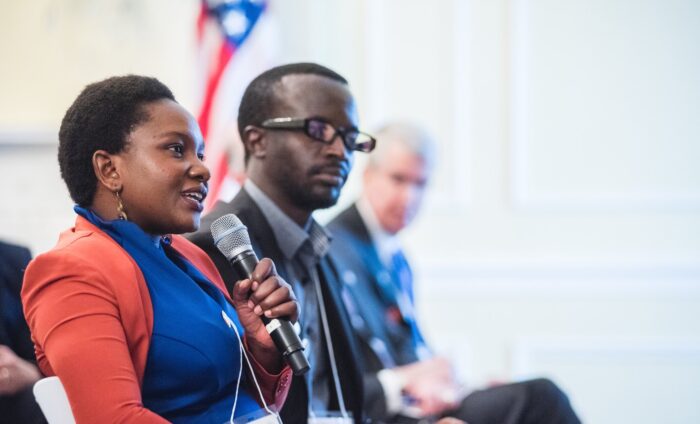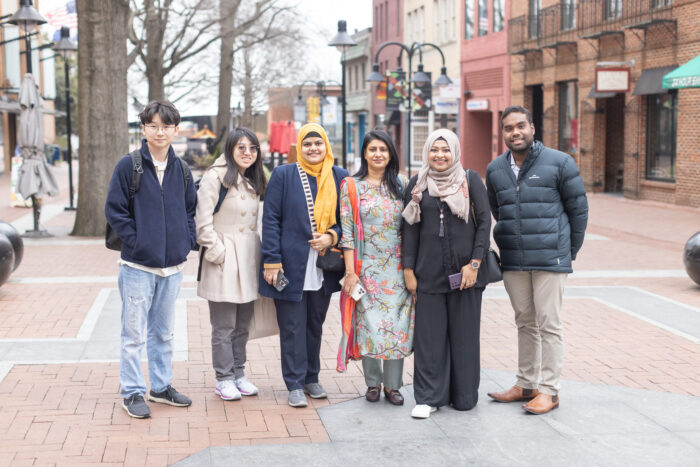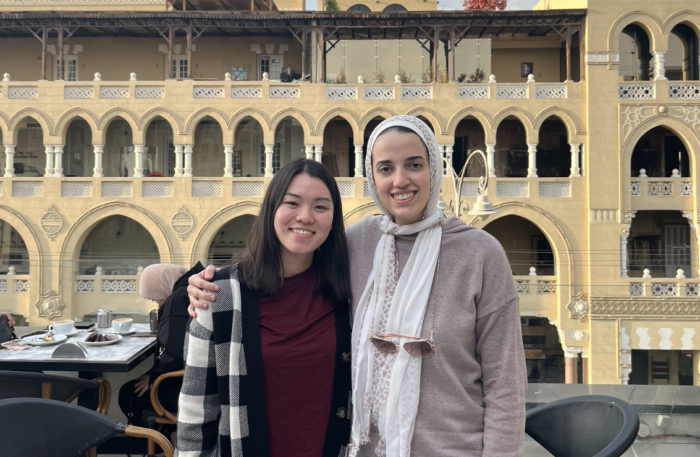From Facebook Post to Global Leadership: My Inspirational Journey
Social media in the modern digital age is frequently associated with negative attributes such as false information, cyber bullying, and wasting time. My experience, however, tells a different story: when social media is used carefully and intentionally, it can serve as a source of inspiration and a spark for significant social and personal transformation.
The Genesis of Inspiration: Malaika Mahlatsi’s Facebook Post
In October 2019, while scrolling through Facebook, I came across a post by Malaika Mahlatsi wa Azania, a world renowned South African author and social commentator. Her post eloquently discussed the importance of the sociological imagination, a concept introduced by C. Wright Mills. Mahlatsi emphasized on the importance of citizens (and professionals) with a sociological understanding of their communities to meaningfully contribute to their development. She argued that understanding the intricate interplay between individual experiences and broader societal structures empowers young people to address systemic issues and drive meaningful change. Malaika was on her way to The Gambia to attend a United Nations-African Union conference on the State of Youth Policy on the continent and revealed that she would advance this position, arguing that, “Africa must stop producing graduates without a conscience, educated men and women with no sociological imagination”.
I did not know her personally – I was merely one of her over 100,000 followers on Facebook. Her words, however, struck a chord with me. The post was more than just text on a screen: it was a call to action. Malaika’s insights opened my eyes to a new way of thinking and motivated me to delve deeper into the sociological imagination and its practical applications. This newfound understanding became a cornerstone of my approach to leadership and social engagement.
From Inspiration to Achievement
Fueled by the principles I learned from Mahlatsi’s post, I decided to participate in South Africa’s youth leadership debate show, ‘One Day Leader’, ran by the public broadcaster, the SABC in 2020. With my understanding of the social imagination, I had an advantage going into the competition. The judges and the audience found resonance in my ability to connect personal stories with societal issues such as unemployment, poverty, inequality – demonstrating a deep comprehension of the challenges of leadership in South Africa, a nation of so many nuances. When asked to coin our vision statements, mine read, “the creation of a peaceful and prosperous society, that includes all people of all races, regardless of gender and transcending sexual orientation depends on the development of citizens with a sociological understanding of their societies so that they can meaningfully contribute to them. Restoring prosperity and promoting the cause of peace for all. South Africa, I am the one you have been waiting for.”
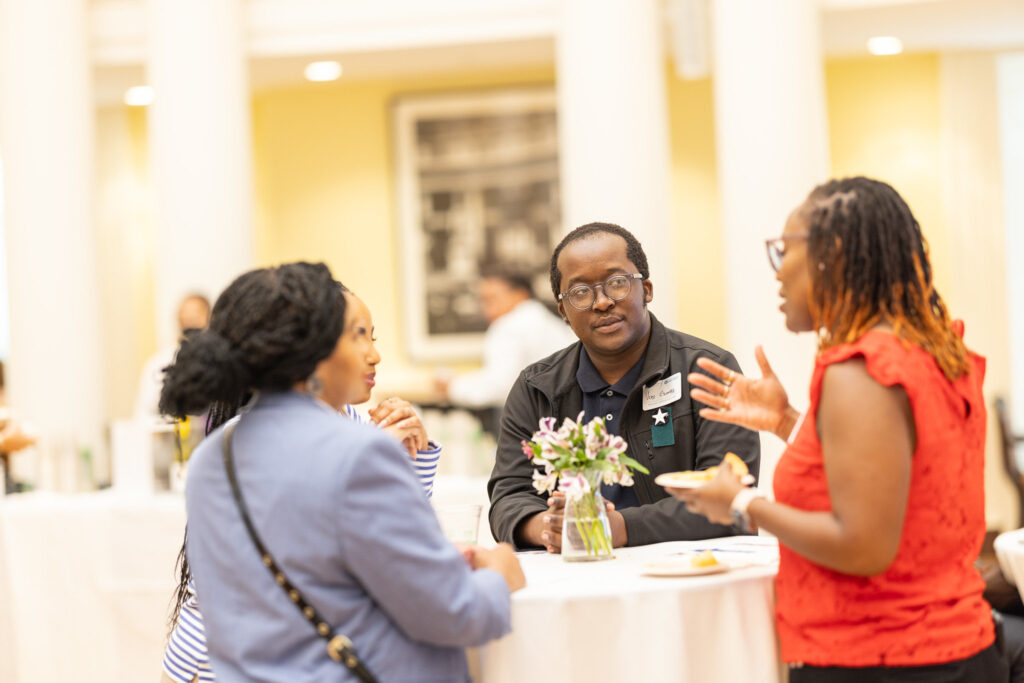
The journey on One Day Leader was challenging, but every episode, every debate and every discussion reinforced my belief in the power of critical thinking and empathy. By consistently applying the sociological imagination, I was able to articulate compelling arguments that addressed both individual and collective experiences on national television inspired by a Facebook post. Ultimately, my efforts paid off, and I was honoured to be named the winner of One Day Leader season 8. I managed to get Malaika’s email address and I sent her an email which read:
—
Dear Malaika,
I trust this email finds you well and that you’re keeping safe.
My name is Vusi Gumbi, from Diepkloof, Soweto. You and I have never met but the inspiration you have instilled in me is immeasurable – thank you for your hard work, your authenticity. You are the contemporary face of what it means to be black not only in South Africa but the world.
I recently won South Africa’s youth leadership reality show, One Day Leader Season 8, ran by the public broadcaster and my vision statement throughout the show was inspired by your Facebook (29 October 2019 – when you were attending a United Nations/African Union conference in Gambia). That post anchored my philosophy on the show and became the logic behind my debates.
My sister continue growing because you inspire people like me, who, despite dire circumstances, believe that South Africa has a place for them too.
Kea leboga ngwana Dipuo,
Vusi Gumbi
—
Today, Malaika and I work for the same institution, the Institute for Pan African Thought and Conversation (IPATC) at the University of Johannesburg.
A Global Platform: Ignite Talk Speaker at the 2024 Mandela Washington Fellowship Summit
Winning One Day Leader in South Africa was a significant milestone. My commitment to the principles of the sociological imagination continued to guide me, and this year I received a remarkable honour – I was selected for the prestigious Mandela Washington Fellowship in the United States, hosted at the Presidential Precinct. Each of the 28 institutes will be represented by one fellow at the Summit in Washington, DC (at the end of the Fellowship), to deliver an Ignite Talk. On 3 July, my fellow peers and I held our ignite talks at the College of William & Mary in Williamsburg and I delivered an ignite talk titled, “Africa needs leaders with a Political and Sociological Imagination”. I was voted by my peers to be an Ignite Talk Speaker at the Summit, representing the Presidential Precinct’s Fellowship Institute.
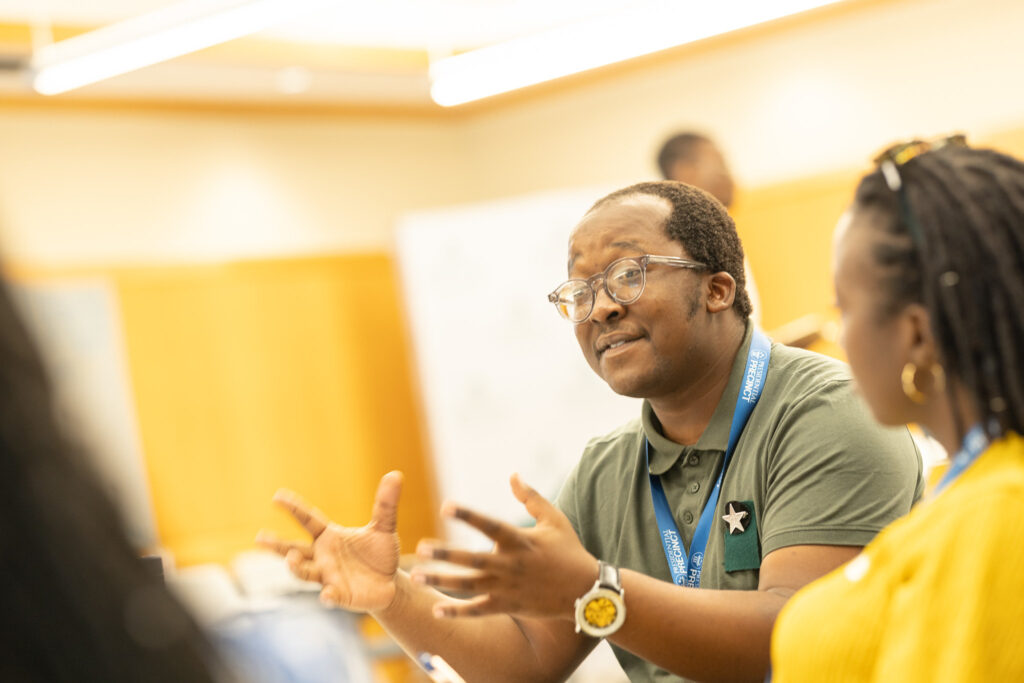
This opportunity allows me to share my story and the insights I’ve gained on a global stage, inspiring other young leaders from Africa. My journey from a Facebook post to an international platform underscores the immense potential of social media to inspire and mobilize individuals toward positive change.
The Broader Implications
My story is just one example of how social media, when used thoughtfully, can have a transformative impact. Platforms like Facebook, Twitter, and Instagram are often criticized, but they also possess the power to disseminate knowledge, foster connections, and inspire action.
Malaika Mahlatsi’s Facebook post didn’t just inspire me; it created a ripple effect. By sharing valuable insights and encouraging critical thinking, she contributed to a wave of positive change. This ripple effect can be replicated on a larger scale when more individuals use social media to share meaningful content and engage in thoughtful discourse.
Conclusion: Harnessing the Power of Social Media
As I prepare to address the Mandela Washington Fellowship Summit on 29 July, I am reminded of the journey that brought me here. It all started with a single Facebook post, a spark of inspiration that ignited a passion for leadership and social change. My story is a testament to the positive potential of social media when used with intention and purpose.
When put to good use, social media can be a catalyst for change, irreplaceable in its ability to inform, educate and advocate. We can use social media as a positive tool if we interact with thought-provoking content and use platforms to encourage empathy and critical thinking. By working together, we can establish a future in which social media acts as a stimulant for individual development, societal change, and the rise of future leaders.
—
Vusi Gumbi is a Researcher at the Institute for Pan African Thought and Conversation at the University of Johannesburg and a 2024 Mandela Washington Fellow at the Presidential Precinct.

